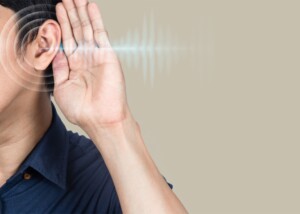
Can a deaf person actually experience tinnitus or the subjective sound of a humming, hissing or other tone in an ear?
Tinnitus is known as “ringing in the ears.” But the so-called ringing can present in any one of numerous ways.
It can resemble the sound of frying bacon, chirping crickets, tinkling, whooshing or fluttering.
The noise seems to come from inside one’s ear, and usually, both ears are affected at the same time.
“Individuals who are deaf can hear tinnitus, as tinnitus is actually phantom sounds generated by the brain due to damaged hearing sensory cells and neurons,” explains Rivka Strom, AuD, CCC-A, chief audiologist at Central Hearing LLC in NY.
It’s intriguing that despite congenital deafness, it is indeed possible for a person to hear the so-called ringing in their ears.
The subjective hissing, buzzing or high pitch tone may develop when the patient is old enough to realize one day that they are experiencing something that’s never been there before.
“Studies of MRI scans on individuals with tinnitus indicate an excess firing of neurons in the brain’s auditory cortex,” continues Strom.
“Since tinnitus is believed to be generated by the brain and not the ear, those who are deaf may perceive tinnitus.”
(This excludes objective tinnitus — in which an examiner as well can hear the sound — which typically involves vascular problems such as an entanglement of blood vessels.)
We actually “hear” with our brain.
What really happens is that sound waves from the environment enter the ear and are converted to electrochemical impulses by nerve cells in the ear’s cochlea.
The cochlea is a spiral shaped structure that has many nerve cells that receive sound waves from the environment.
These nerve cells transmit the impulses to the hearing center of the brain, where they are decoded and interpreted as the various sounds we hear in the environment.
This entire process takes place in milliseconds.
So in the case of a person who was born completely deaf and has always been unable to hear sounds in the external environment, you can now understand how that individual would hear subjective tinnitus if the electrical activity is originating in the brain’s auditory cortex.

Dr. Strom is a member of the American Speech Language and Hearing Association and has received several awards including Brooklyn College’s Excellence In Audiology Award.
 Lorra Garrick has been covering medical, fitness and cybersecurity topics for many years, having written thousands of articles for print magazines and websites, including as a ghostwriter. She’s also a former ACE-certified personal trainer.
Lorra Garrick has been covering medical, fitness and cybersecurity topics for many years, having written thousands of articles for print magazines and websites, including as a ghostwriter. She’s also a former ACE-certified personal trainer.
.









































